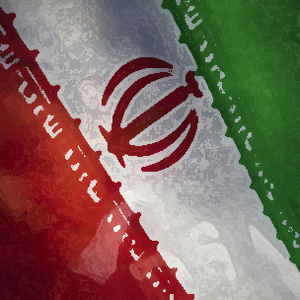The Week in Iran

The week started with a ‘nuclear tour’. A few days before the critical Istanbul talks with the US, Russia, China and the European Trio (Germany, France and the UK represented by EU foreign affairs commissioner Catherine Ashton), in a goodwill gesture made by Iran to build confidence about its contentious nuclear program, foreign diplomats were invited to visit Iran’s nuclear enrichment facilities at Arak and Natanz in central Iran. Iran’s invitation was rebuffed by the P5+1, which said that a visit to Iran’s nuclear sites was the responsibility of the IAEA. Iran’s faithful but non-influential friends in the Non-Aligned Movement (NAM) and G77 (seventy-seven developing countries) accepted Iran’s invitation. Envoys from Venezuela and Cuba (on behalf of NAM), Egypt (representing the G77), Oman (interim president of the Persian Gulf Cooperation Council) and Syria (Arab League’s ambassador to the IAEA) visited Iran’s uranium enrichment facilities. Iran used the opportunity to boast of another set of achievements in nuclear medicine.
Tensions inside the Principlist camp –between pro-Ahmadinejad forces and other conservatives- urged the senior clerics representing two important clerical institutions –the Society of Seminary Teachers of Qom and the Combatant Clergy Association- to release a statement dubbed the Charter of Principlism early in the week. The Clergy Association began its downfall after the rise of Reformist Mohammad Khatami in 1997, and its last desperate effort to serve as the lynchpin of Principlists failed in 2005 when it unsuccessfully tried to unite the camp to support one of the four presidential candidates –Mahmoud Ahmadinejad, Mohsen Rezaee, Mohammad-Baqer Qalibaf and Ali Larijani. The story is the same for the Society of Seminary Teachers which was once powerful enough –for the first time in history- to dismiss a revered cleric and a marja’ –Ayatollah Kazem Shari’atmadari- for alleged conspiracy against Ayatollah Khomeini, the late leader of the Islamic Republic. The charter is of course nothing new. The ‘indicators’ of Principlism include general issues such as ‘defending Islamic values’, ‘adherence to the Islamic Republic’s tenets’, ‘practical compliance to velayat-e faqih and respecting the Leadership’s suggestion as the final word’ etc., which even a moderate Reformist can claim to be abiding by.
Amid fear and hope, Iran and the P5+1 (five permanent members of the UN Security Council and Germany) started another round of nuclear talks in Istanbul, Turkey, on Friday. Iranian dailies tried to stay positive toward the negotiations, speaking of Iran’s mettle and the positive mood surrounding the talks. Hard-liner Kayhan spoke of the Iranian delegations’ dominance over the P5+1 in the talks. According to this newspaper, the Iranian team shrewdly precluded repetition of the same old issues by the West and instead tried to propose an operational model for cooperation, which caused chaos among the Western negotiators. It also spoke of the warm welcome that Iran’s chief nuclear negotiator Saeed Jalili had received during his attendance at Friday prayers in Istanbul.

